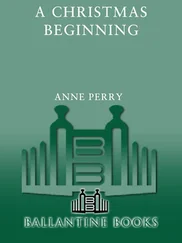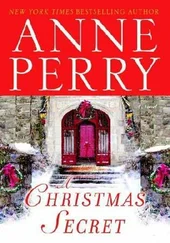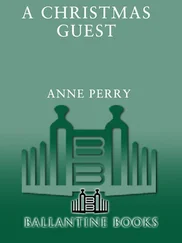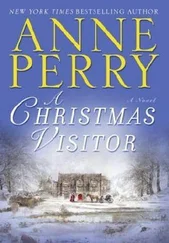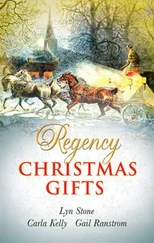Anne Perry - A Christmas Promise
Здесь есть возможность читать онлайн «Anne Perry - A Christmas Promise» весь текст электронной книги совершенно бесплатно (целиком полную версию без сокращений). В некоторых случаях можно слушать аудио, скачать через торрент в формате fb2 и присутствует краткое содержание. Жанр: Старинная литература. Описание произведения, (предисловие) а так же отзывы посетителей доступны на портале библиотеки ЛибКат.
- Название:A Christmas Promise
- Автор:
- Жанр:
- Год:неизвестен
- ISBN:нет данных
- Рейтинг книги:4 / 5. Голосов: 1
-
Избранное:Добавить в избранное
- Отзывы:
-
Ваша оценка:
- 80
- 1
- 2
- 3
- 4
- 5
A Christmas Promise: краткое содержание, описание и аннотация
Предлагаем к чтению аннотацию, описание, краткое содержание или предисловие (зависит от того, что написал сам автор книги «A Christmas Promise»). Если вы не нашли необходимую информацию о книге — напишите в комментариях, мы постараемся отыскать её.
A Christmas Promise — читать онлайн бесплатно полную книгу (весь текст) целиком
Ниже представлен текст книги, разбитый по страницам. Система сохранения места последней прочитанной страницы, позволяет с удобством читать онлайн бесплатно книгу «A Christmas Promise», без необходимости каждый раз заново искать на чём Вы остановились. Поставьте закладку, и сможете в любой момент перейти на страницу, на которой закончили чтение.
Интервал:
Закладка:
When Gracie pushed the back door open to their lodgings in Heneage Street, her grandmother was standing with a basin of water ready to wash and peel the potatoes. She looked worn-out from spending all day up to her elbows in hot water, caustic, and lye, heaving other people’s wet linen from one sink to another, shoulders aching, back so sore she could hardly touch it. Then she would have to lift the linen all again to wind it through the mangles that would squeeze the water out, and there would be some chance of getting it dry so it could be returned, and paid for. There was always need for money: rent, food, boots, a few sticks and a little coal to put on the fire, and of course Christmas.
Gracie hardly grew out of anything. It seemed as if she had stopped at four feet eleven, and worn-out pieces could always be patched. But Spike and Finn were bigger every time you looked at them, and considering how much they ate, perhaps no one should have been surprised.
The food was good, and every scrap disappeared, even though they were being careful and saving any treats for Christmas. Spike and Finn bickered a bit, as usual, then went off to bed obediently enough at about seven. There wasn’t a clock, but if you thought about it, and you were used to the sounds of the street outside, footsteps coming and going, the voices of those you knew, then you had a good idea of time.
They had two rooms, which wasn’t bad, considering. There was the kitchen, with a tin bowl for washing; the stove, to cook and keep warm; and the table and three chairs and a stool. And there was the bench for chopping, ironing, and baking now and then. There was a drain outside the back door, a well at the end of the street, and a privy at the bottom of the yard. In the other small room, Gracie and her gran had beds on one side, and on the other they had built a sort of bed for the boys. They lay in it, one at each end.
But Gracie did not sleep well, in spite of being very nearly warm enough. She could not forget Minnie Maude Mudway, standing on the street corner in the dusk, grieving for loneliness, death, a donkey who might or might not be lost. All night it troubled her, and she woke to the bleak, icy morning still miserable.
She got up quickly, without disturbing her gran, who needed every moment of sleep she could find. Gracie pulled on her clothes immediately. The air was as cold as stone on her skin. There was ice on the inside of the windows as well as on the outside.
She tiptoed out into the kitchen, put on her boots, and buttoned them up. Then she started to rake out the dead ashes from the kitchen stove and relight it so she could heat a pan of water and make porridge for breakfast. That was a luxury not everyone had, and she tasted it with pleasure every time.
Spike and Finn came in before daylight, although there was a paling of the sky above the rooftops. They were full of good spirits, planning mischief, and glad enough to eat anything they were given: porridge, a heel of bread, and a smear of dripping. By half past eight they were off on errands for the woman at the corner shop, and Gran, fortified by a cup of tea, insisting it was enough, went on her way back to the laundry.
Gracie busied herself with housework, washing dishes, sweeping, and dusting, putting out slops and fetching more water from the well at the end of the street. It was cold outside, with a rime of ice on the cobbles and a hard east wind promising sleet.
By nine o’clock she could not bear her conscience anymore. She put on her heaviest shawl, gray-brown cloth and very thick, and went outside into the street again and down to the corner to look for Minnie Maude.
London was an enormous cluster of villages all running into one another, some rich, some poor, none worse than Flower and Dean Walk, which was filled with rotting tenements, sometimes eight or ten people to a room. It was full of prostitutes, thieves, magsmen, cracksmen, star-glazers, snotter-haulers, fogle-hunters, and pickpockets of every kind.
Oddly enough, the boundaries remained. Each village had its own identity and loyalties, its hierarchies of importance and rules of behavior, its racial and religious mixtures. Just the other side of Commercial Street it was Jewish, mostly Russians and Poles. In the other direction was Whitechapel. Thrawl Street, where Minnie Maude said she lived, was beyond Gracie’s area. Only something as ignorant as a donkey would wander from one village to another as if there were no barriers, just because you could not see them. Charlie could hardly be blamed, poor creature, but Minnie Maude knew, and of course Gracie did even more so.
At the corner the wind was harder. It sliced down the open street, whining in the eaves of the taller buildings, their brick defaced with age, weathering, and neglect. Water stains from broken guttering streaked black, and she knew they would smell of mold inside, like dirty socks.
The soles of her boots slipped on the ice, and her feet were so cold she could not feel her toes anymore.
The next street over was busy with people, men going to work at the lumberyard or the coal merchant, girls going to the match factory a little farther up. One passed her, and Gracie saw for a moment the lopsided disfigurement of her face, known as “phossie-jaw,” caused by the phosphorus in the match heads. An old woman was bent over, carrying a bundle of laundry. Two others shared a joke, laughing loudly. There was a peddler on the opposite corner with a tray of sandwiches, and a man in a voluminous coat slouched by.
A brewer’s dray passed, horses lifting their great feet proudly and clattering them on the stones, harnesses gleaming even in the washed-out winter light. Nothing more beautiful than a horse, strong and gentle, its huge feet with hair like silk skirts around them.
A hawker came a few yards behind, pushing a barrow full of vegetables, pearly buttons on his coat. He was whistling a tune, and Gracie recognized it as a Christmas carol. The words were something about merry gentlemen.
She walked quickly to get out of the wind; it would be more sheltered once she was around the corner. She knew what street she was looking for. She could remember the name, but she could not read the signs. She was going to have to ask someone, and she hated that. It took away all her independence and made her feel foolish. At least someone would know Minnie Maude, especially since there had just been a death in the family.
She was regarded with some suspicion, but five minutes later she stood on the narrow pavement outside a grimy brick-fronted house whose colorless wooden door was shut fast against the ice-laden wind.
Until this moment Gracie had not thought of what she was going to say to explain her presence. She could hardly tell them that she had come to help Minnie Maude find Charlie, because if she were really a good person, she would have offered to do that yesterday. Going home to tea sounded like an excuse. And anyway, Aunt Bertha had already said that, as far as she was concerned, it didn’t matter, and whatever Minnie Maude thought of it, Aunt Bertha seemed reasonable enough. The poor woman was bereaved, and probably beside herself with worry as to how they were going to manage without a money-earning member of the family. There was a funeral to pay for, never mind looking for daft donkeys that had wandered off. Except that he might be worth a few shillings if they sold him?
Probably they already had, and just didn’t want to tell Minnie Maude. She was too young to understand some of the realities of life. That was probably it. Better to tell her, though. Then she would stop worrying that he was lost and scared and out in the rain by himself.
Gracie was still standing uselessly on the cobbles, shifting from one foot to the other and shaking with cold, when the door opened and a large man with a barrel chest and bowlegs came out, banging his hands together as if they were already numb.
Читать дальшеИнтервал:
Закладка:
Похожие книги на «A Christmas Promise»
Представляем Вашему вниманию похожие книги на «A Christmas Promise» списком для выбора. Мы отобрали схожую по названию и смыслу литературу в надежде предоставить читателям больше вариантов отыскать новые, интересные, ещё непрочитанные произведения.
Обсуждение, отзывы о книге «A Christmas Promise» и просто собственные мнения читателей. Оставьте ваши комментарии, напишите, что Вы думаете о произведении, его смысле или главных героях. Укажите что конкретно понравилось, а что нет, и почему Вы так считаете.


